All the Answers
Well-known member
In April the union protest will grow: a wave of strikes is expected that will include transport, state, teachers and the CGT - Infobae

Source:

En abril crecerá la protesta sindical: se prevé una oleada de paros que incluirá al transporte, estatales, docentes y la CGT
El rechazo al ajuste del Gobierno y a las limitaciones salariales acelerarán este mes las medidas de fuerza de diversos gremios. Ante las fuertes presiones, la central obrera fijará la fecha de la segunda huelga general desde que asumió Javier Milei
April 02, 2024
The rejection of the Government's adjustment and salary limitations will accelerate the forceful measures of various unions this month. Faced with strong pressure, the labor union will set the date for the second general strike since Javier Milei took office.
By Ricardo Carpena
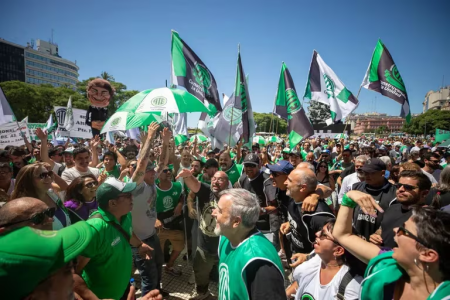
ATE begins the month of April with a measure of force against layoffs in the State
The union almanac has the month of April that has just begun marked in red . It will be 30 days with increasing conflict that could include the second general strike of the CGT against the government of Javier Milei and protests by state employees against the adjustment in the public sector.
The first reaction of unionism in April will occur this Wednesday when the State Workers Association ( ATE ) holds a day of national struggle , with strikes and assemblies in different provinces, which in turn, in the context of the conflict over layoffs in different public organizations, will include “peaceful takeovers” and forced entry into different ministries .
In this way, the union led by Rodolfo Aguiar will protest against the dismissal of some 15,000 public employees whose contracts expired on March 31, but incidents are feared because the Government is preparing to confront union measures with the application of the anti-picketing protocol and the decision to have more security personnel in state buildings.
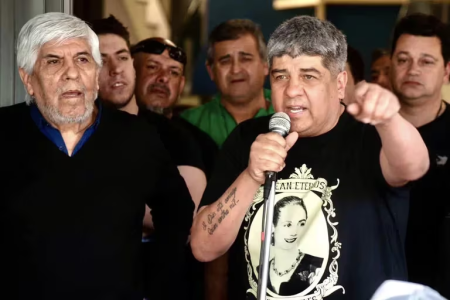
Hugo and Pablo Moyano could decide to protest so that the latest increase in the Truckers Union is approved
But they will not be the only actions that the unions will carry out this month. The Confederation of Transport Workers (CATT) plans “simultaneous scheduled assemblies in the work sectors” in April , which is a way of carrying out a covert strike. When speaking before some 400 representatives of railway, aeronautical, truck, maritime and taxi drivers, the deputy secretary of that entity, Juan Carlos Schmid (Dragado y Balizamiento), admitted that there will be assemblies “from 7 to 10, “interrupting services” as “ “first step to move towards greater intensity measures.” And he pointed out: “We have to win the fight with intelligence. “We are not going to do anything with a single strike.”
There will surely be more strikes if the Ministry of Labor delays the approval of wage agreements that exceed the 15% guideline set by the Ministry of Economy to discourage inflationary expectations. This scenario would lead to forceful measures by the Truck Drivers Union, led by Hugo Moyano, to which the labor authorities still have not approved the last salary agreement that was agreed upon with the employers ( 45% in two tranches, 25% in March and 20% in April).
In the Ministry of Labor, headed by lawyer Julio Cordero, there is still no news about the approval of the Truck Drivers' joint agreement, which was signed on February 23, that is, a little over a month ago. When asked by Infobae, official spokespersons limited themselves to stating: “This agreement is under legal review because it has several questions.”
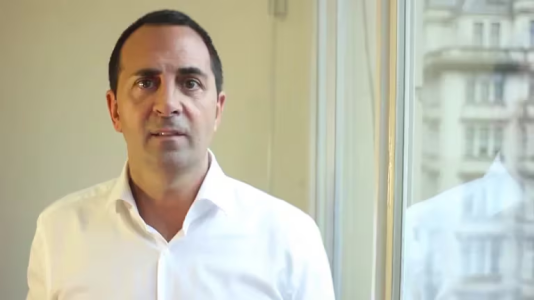
The Secretary of Labor, Julio Cordero
Meanwhile, the majority sector of the CGT ("Gordos" and independents) is measuring the time before launching another general strike against the Government (the second after the 12-hour strike with mobilization on January 24), but the strong pressure exercised by different union fractions could lead to the urgent setting of a date for a new measure of force.
As Infobae anticipated, the CGT dialogueists are delaying the definition of another measure of force because, on the one hand, they are waiting for signs of an eventual call for dialogue by the Secretary of Labor, Julio Cordero, and, on the other, they believe that it is necessary wait for social unrest to grow to guarantee a very high level of compliance with the protest, something that they privately question because they look with concern at the surveys that continue to give Milei a good image .
In turn, the moderate current of the CGT is committed to reinforcing pressure on governors and legislators so that the ratification of DNU 70 and the Base Law (which includes the restoration of the Income Tax) fails in Congress. The leaders of this sector take credit for part of the political gain of having managed to get the Senate to reject Milei's decree of necessity and urgency.
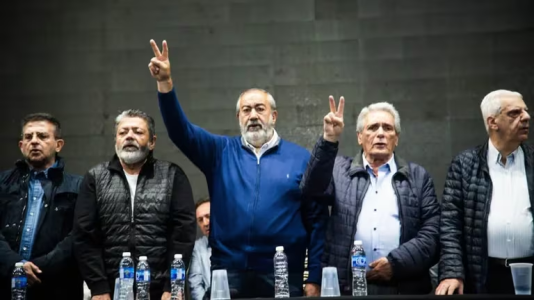
Héctor Daer, Gerardo Martínez, Carlos Acuña and José Luis Lingeri, from the CGT: the dialogueists would agree to set a date for another general strikePablo Moyano (Truckers) is the co-head of the CGT that makes up the most opposition sector against the Government and has been announcing for weeks that there will be meetings to resolve another general strike for April. However, the dialogue faction of the CGT (led by Héctor Daer, from Health, from the “Los Gordos” sector, and Andrés Rodríguez, from UPCN; Gerardo Martínez, from UOCRA, and José Luis Lingeri, from Obras Sanitarias, from the “independents”) does not even call a meeting of its “small table”: the last one was held a month and a half ago in the Health Union.
The pressure in favor of setting a date for a new general strike comes not only from the CATT but also from three leaders who joined together last week to demand a plenary session of general secretaries of the CGT to decide on new protests: this is Luis Barrionuevo ( gastronomic) and Omar Maturano (La Fraternidad) and the co-head of the CGT Carlos Acuña (service stations). The author of the famous phrase “in Argentina no one makes money working” went further: he asked that Héctor Daer, the co-owner of the Cegetista and champion of the dialogue sector, declare a strike and resign from his position, as he did, as he recalled without any innocence. , Gerardo Martínez (UOCRA), another exponent of the moderate wing, when he was general secretary of the CGT during the government of Carlos Menem.
Now, widespread pressure could lead the Cegetista leadership to agree to call a meeting in the coming days to decompress internal tensions. There is already talk of the possibility that the labor union will resolve a 24-hour general strike before the end of April. The two CTAs , however, promote a “federal march” that culminates in the Plaza de Mayo.
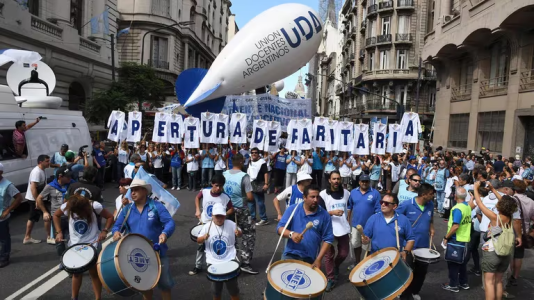
The Argentine Teachers Union (UDA) would coordinate with other unions in the sector a national protest demanding salary improvements
Discontent is also growing among the teaching unions, which, despite their classic differences, are already talking about a large national protest demanding salary improvements. In mid-March, the Government made an increase proposal almost identical to the one that the unions had already rejected, of $325,000. For the leaders of the sector, who demand an initial salary of $450,000, the official offer is “absolutely insufficient and would only reach the small number of provinces that are below that value, $325,000, so they offer us less than what they most jurisdictions have already passed, which makes the proposal absurd,” according to the Argentine Teachers Union (UDA), led by Sergio Romero, Secretary of Educational Policies of the CGT.
To make matters worse, Milei made changes to the national budget and ordered the elimination of the National Teacher Incentive Fund (FONID), which allowed teachers' salaries to be reinforced. For CTERA, headed by Sonia Alesso and Roberto Baradel, “the FONID is a right that we achieved in 1998 and that cannot be eliminated by decree because it is a law voted by a very large majority,” and warned that the decision “further aggravates the situation.” teaching salary, since it means between a 10% and 20% salary reduction, in addition to affecting the educational budgets of the provinces.
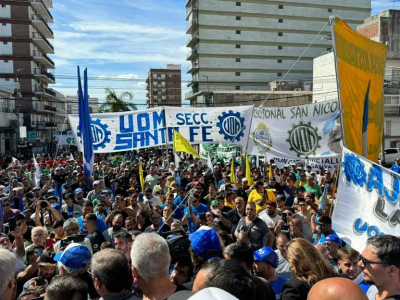
The UOM is carrying out marches in different Buenos Aires cities to demand a salary increase in steel companies
The Metallurgical Workers Union (UOM), for its part, will deepen its protests this week demanding a salary increase in the steel sector. After the 24, 48 and 72 hour strikes carried out in March, the union led by Abel Furlán will hold the third “March of Dignity” next Thursday in the Buenos Aires city of San Nicolás, after the one it did last week in Campana and before the one announced for April 11 in Villa Constitución.
That same April 11, the Villa Constitución section of the UOM ordered an active strike for an indefinite period in Acindar due to the lack of a salary agreement, which opens a new disturbing situation in the steel company: its four plants have been paralyzed since April 18. March and until April 15 due to the drop in sales and a week ago it agreed with the union to suspend 600 contractor workers and a truce until May 2.

